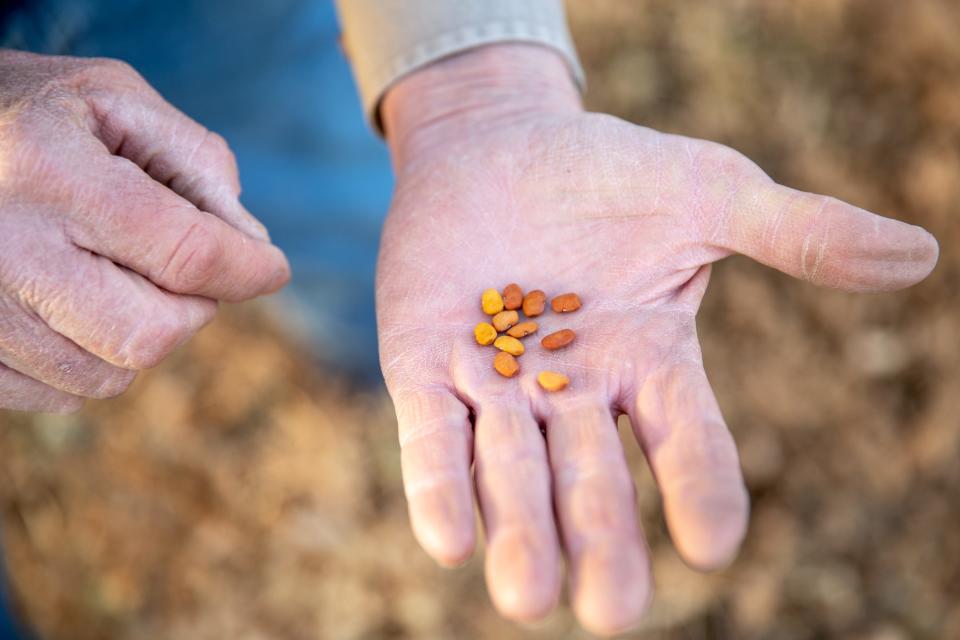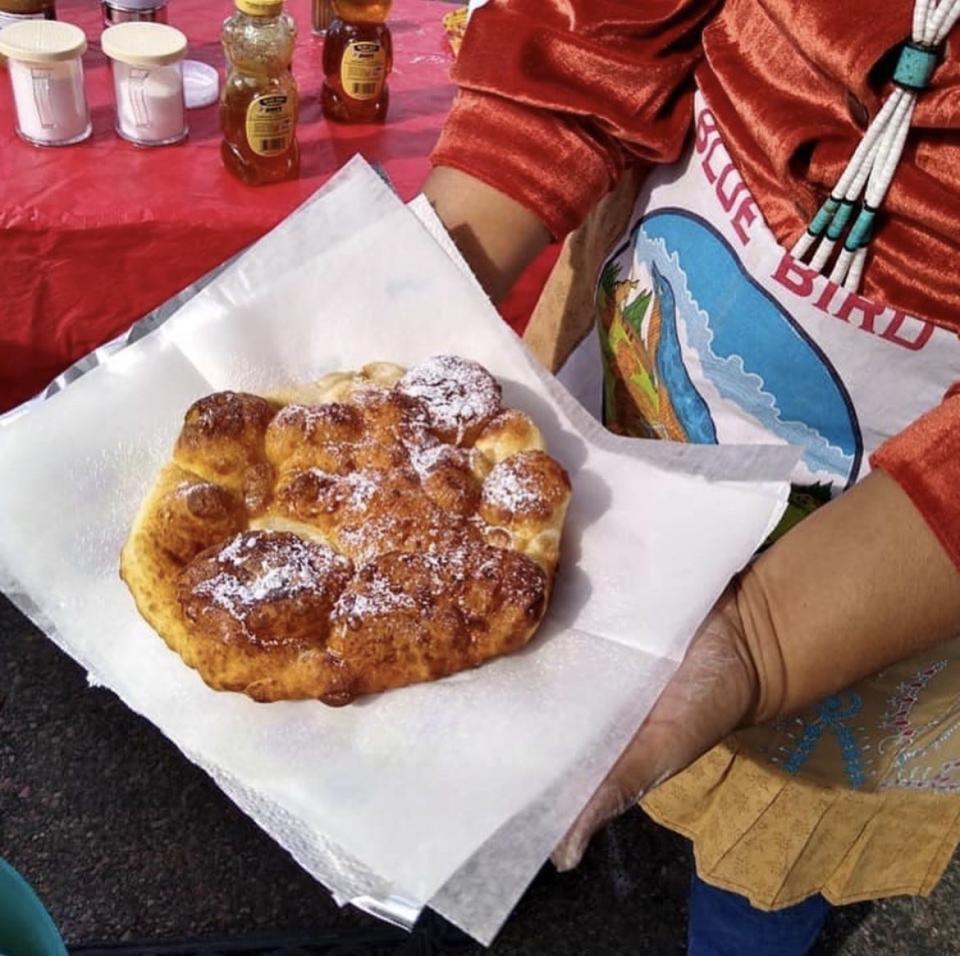Indigenous artisans in metro Phoenix share heritage with blue corn cookies and fry bread mix
Twenty-two federally recognized tribes live in Arizona, with the highest proportion of land allocated to Native American reservations of any state in the country. Among them are Navajo, Hopi, Salt River Pima-Maricopa Indian Community, Tohono O'odham, Tonto Apache, White Mountain Apache and Yavapai-Apache. Many are reconnecting to Indigenous foodways and their relationships to the land through Nativeingredients.
Beyond restaurant owners and chefs, Indigenous artisans are using traditional ingredients to honor family, culture and heritage. Many of recipes were handed down from grandmothers, one farmer brought back a crop at her elders' encouragement and a blogger incorporates her Native heritage into everyday life, and shares ways others can too.
Meet the Indigenous artisans sharing a taste of Native food culture in metro Phoenix.
Indigenous Peoples’ Day festival: What to expect
Blue Corn Custom Designs
Owner and maker, Rochelle Garcia, a Diné woman, founded her business in 2019. The inspiration behind the name came from the blue corn her family would bring when they'd visit from the reservation. At her online shops and events, Garcia offers creations made with different parts of the crop, from flowers made with the husk to cookies and cornbread made from ground grain. She also sells Navajo tea and juniper ash and a popular assorted cookie box featuring a variety of flavors including blue corn and lemon cookies. She posts her pop-up schedule on her website.
Details: 602-679-5801, linktr.ee/bccd.
'A piece of Navajo in Mesa': The long awaited Hope's Frybread restaurant is opening.
Fancy Navajo
Alana Yazzie, aka, Fancy Navajo, is an influencer and blogger who uses her platform to bring attention to Indigenous culture, food and businesses. "I love to incorporate my Native American heritage into my everyday life," she writes on her blog where she also shares recipes for sweet and savory foods with an entire collection dedicated to blue corn from blue corn mush to doughnuts, pancakes, cookies, scones, cupcakes and even quiche.
Details: thefancynavajo.com.
Celebrate Native food culture: at these 11 Indigenous-owned restaurants in Phoenix
Ramona Farms

Owner Ramona Button and her husband, Terry, took over her family's farm, near Sacaton on the Gila River Indian Reservation in 1974. She started with alfalfa and barley, but later expanded to reintroducing tepary beans or bafv at her elders' encouragement. Since then, she has added other crops including garbanzo beans or Kalvash, heirloom corn and wheat berries. The website lists the stores that carry Ramon Farms products. Customers can also order online. Ramona Farms products are American Indian Foods-certified. AIF, a branch of the Intertribal Agriculture Council started in 1998 as a platform for American Indian products. It also protects Native American businesses and the customers by ensuring that the producers are indeed American Indian.
Details: 1407 AZ-87, Sacaton. 520-418-3642, ramonafarms.com.
Native Ground Coffee
Native Ground is owned byWinter Wood who is of the Onk Akimel O’odham people. The online shop and subscription service offers botanical teas and single-origin coffee at the Salt River Pima-Maricopa Indian Community in Arizona. Wood sells 12-ounce and two-pound bags of whole or ground coffee with discounts available for subscribers. Teas are packaged in 14 satchels per bag. Native Ground Coffee is AIF-certified. This year, Wood is donating a portion of the proceeds to National Indigenous Women's Resources to fight the injustice of unsolved cases of missing and murdered indigenous women.
Details: nativegroundcoffee.com.
Navajo Mike's
The brainchild of Chef Michael John, Navajo Mike's came to be when he lost his Tempe restaurant job during the pandemic. He'd always wanted to create a trueculinary representation of the Southwest, so he started experimenting with desert ingredients, especially prickly pear, to make barbecue sauces. He now produces a Southwest style sauce with smoked prickly pear; Skinwalker, the spicy version of Southwest sauce and Skoden Golden, which includes mustard. He also makes hot sauces including Diamondback Juice made with Fresno chilis, Sonoran Desert Drip made with fire-roasted green chilis and serranos and Monster Venom made with dark chilis. John recently added a fry bread mix to his website. Navajo Mike's is also AIF-certified.
Details: Find the sauces at Native Art Market and Sphinx Date Co. in Scottsdale and at Senegal and Beyond in Phoenix. navajomikes.com.

Val's Frybread
Owner and operator Valene Hatathlie, a Navajo woman, started making and selling frybread in 2018 to pay her college tuition. When the pandemic forced her to cancel her pop-ops in 2022, she pivoted and created a frybread mix. Making frybread takes lots of practice, so Val, who learned the craft from her grandmother, has tried to make it more accessible through a premade mix based onher grandmother's recipe. She ships the mix nationally and internationally and has resumed her pop-ups around the Valley.
Val's Frybread is AIF-certified.
Details: valsfrybread.com.
Closed: Metro Phoenix restaurants and bars that closed in September included a few award-winners
Reach the reporter at BAnooshahr@azcentral.com. Follow @banooshahr on Twitter.
This article originally appeared on Arizona Republic: Native American businesses in Phoenix selling indigenous ingredients

